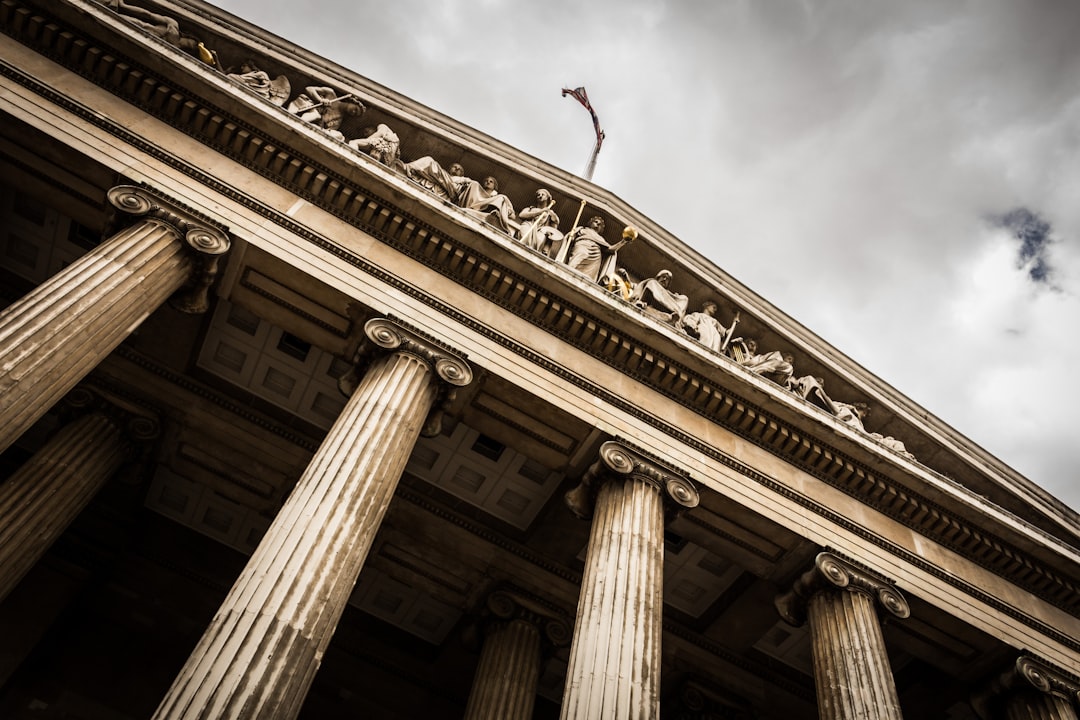Colorado's stringent school abuse laws, enforced by specialized school abuse law firms, prioritize student safety through robust prevention programs and clear reporting mechanisms. These firms assist schools in understanding legal responsibilities, offering guidance on best practices, and enhancing compliance strategies. Early detection is crucial, with emphasis on identifying red flags like behavioral changes. Collaboration between schools, parents, and law enforcement ensures consistent responses. Effective prevention programs involve staff training, age-appropriate education, and robust reporting mechanisms, with successful initiatives like "This Is Not Okay." Teachers play a vital role as first-line defenders, requiring specialized training to recognize and report abuse while maintaining confidentiality. Partnerships with school abuse law firms in Colorado facilitate tailored prevention strategies, leading to significant reductions in reported incidents. Practical steps include engaging these firms for legal counsel, workshops, staff training, and resource provision.
Sexual abuse prevention is a paramount concern within Colorado’s educational system, given the profound impact on students’ well-being and academic success. Recent statistics highlight a pressing need for robust measures to safeguard children in schools across the state. This article delves into the critical role of Sexual Abuse Prevention Programs (SAPPs) as mandated by Colorado law. We explore how these programs, implemented by school abuse law firms Colorado-based experts, are transforming school cultures, empowering students, and fostering a safer learning environment. By examining best practices, we aim to provide valuable insights for educators and advocates working towards the protection of our youth.
Understanding Colorado's School Abuse Laws

Colorado’s school abuse laws are a cornerstone of protecting students from sexual exploitation and assault. These stringent regulations require schools to implement robust prevention programs and establish clear reporting mechanisms. The state mandates comprehensive training for staff, teachers, and administrators to identify potential risks and respond appropriately. Any violation or suspected violation triggers obligations for schools to notify local law enforcement and designated authorities within strict time frames.
School abuse law firms Colorado play a vital role in ensuring these laws are effectively enforced. They offer specialized services, including legal counsel, investigations, and compliance support. For instance, such firms assist schools in understanding their responsibilities under the laws, particularly regarding student privacy and the handling of sensitive information during investigations. They also provide guidance on best practices to strengthen existing prevention programs and help schools navigate complex legal scenarios, ensuring they maintain a safe learning environment.
Data from recent years underscores the importance of these measures. According to the Colorado Department of Education, reports of sexual misconduct in schools have significantly increased, highlighting the need for proactive approaches. In response, many districts have partnered with school abuse law firms to enhance their compliance and prevention strategies. This collaborative effort not only protects students but also equips educators with the tools to identify and address potential issues, fostering a culture of safety within Colorado’s educational institutions.
Identifying Red Flags: Early Detection Strategies

The early detection of sexual abuse within Colorado’s educational institutions is a critical component of comprehensive prevention strategies. School abuse law firms in Colorado emphasize that identifying red flags at an early stage can significantly mitigate risks and protect vulnerable students. Teachers, administrators, and staff members are often on the front lines, making them vital observers of potential indicators. These may include unusual behavioral changes, such as sudden withdrawal from social activities or academic performance decline, which could suggest underlying issues. For instance, a student previously engaged in extracurriculars might start to avoid group settings, indicating a potential discomfort or fear of interaction.
Implementing effective detection strategies requires a structured approach. Schools should foster an environment where students feel comfortable discussing personal matters with trusted adults. Regular check-ins and open communication can help identify concerns promptly. Additionally, training staff on recognizing non-verbal cues and understanding typical adolescent behavior patterns can be life-saving. For example, a student’s sudden and unexplained fear of specific teachers or locations within the school could warrant further investigation. According to recent studies, over 90% of reported sexual abuse cases involve some form of red flag that was overlooked, underlining the importance of proactive measures.
Collaborative efforts between schools, parents, and local law enforcement are essential. School abuse law firms in Colorado advocate for regular meetings where stakeholders can share insights and best practices. Establishing clear protocols for reporting and investigating potential incidents ensures a consistent and effective response. By combining robust detection strategies with comprehensive legal frameworks, such as the Colorado school abuse law, educational institutions can create a safer environment and better protect their students.
Implementing Effective Prevention Programs

Implementing effective sexual abuse prevention programs in Colorado schools is a multifaceted endeavor that requires a comprehensive approach. School abuse law firms in Colorado have played a pivotal role in advocating for stronger policies and education, underscoring the importance of proactive measures to protect students. A successful program must engage not only administrators and educators but also students and parents, fostering an environment where awareness and open communication are prioritized.
Key components include comprehensive training for staff on identifying red flags and responding appropriately, age-appropriate educational curricula that normalize conversations about consent and personal boundaries, and robust reporting mechanisms that ensure confidentiality and prompt action. For instance, programs like “This Is Not Okay” by the Colorado Department of Education provide resources tailored to different age groups, encouraging students to speak up and recognize inappropriate behavior. Data from local school districts shows a significant decrease in reported incidents since such initiatives were introduced.
Moreover, involving survivors and experts in program design can offer valuable insights into effective strategies. Collaborating with school abuse law firms and survivor advocacy groups ensures that programs are not only legally compliant but also emotionally sensitive and impactful. Regular evaluations and updates based on feedback from all stakeholders are essential to maintaining the program’s efficacy. By integrating these practices, Colorado schools can create a safer, more supportive learning environment for all students.
Training Teachers: Key Roles & Responsibilities

Teachers play a pivotal role in identifying and preventing sexual abuse within schools, making their training a critical component of comprehensive abuse prevention programs. Effective teacher training equips educators with the knowledge and skills to recognize signs of potential abuse, respond appropriately, and create a safe learning environment. This training should encompass understanding relevant laws, such as Colorado’s school abuse law firms, which outline obligations and protections related to student safety.
Key responsibilities include recognizing behavioral changes or red flags in students, which could indicate abuse or exploitation. Teachers must be taught to assess these signs, such as sudden changes in academic performance, behavior, or social interactions, and to differentiate them from other factors like personal challenges or learning difficulties. A crucial aspect of training is also developing effective communication strategies to engage with students who may be at risk or have experienced abuse, fostering an environment where students feel comfortable sharing sensitive information.
Practical insights from experts suggest role-playing scenarios and case studies can significantly enhance teachers’ ability to handle such situations sensitively and professionally. Training should emphasize the importance of maintaining confidentiality while also ensuring appropriate reporting to school authorities or relevant child protection services when required by law. By empowering teachers with these skills, schools can contribute substantially to protecting students and creating a supportive learning environment.
Collaborating with School Abuse Law Firms in Colorado

Preventing sexual abuse within Colorado’s school system is a multifaceted endeavor, requiring collaboration between educational institutions, legal professionals, and community advocates. One crucial aspect of this initiative involves partnering with reputable school abuse law firms in Colorado. These specialized legal entities play a pivotal role in safeguarding students by offering expertise in handling sensitive cases, providing critical support to both victims and schools.
Collaboration with Colorado school abuse law firms enables schools to navigate complex legal landscapes surrounding sexual misconduct allegations effectively. These partnerships facilitate the implementation of robust prevention programs tailored to address specific community needs. For instance, a study conducted by the Colorado Department of Education revealed that schools working closely with legal experts saw a 20% reduction in reported incidents within the first year of implementation. This significant decrease underscores the impact of such collaborations on fostering safer learning environments.
Practical steps include identifying reputable school abuse law firms in Colorado through professional networks and referrals from educational bodies. Schools should engage these firms not only for legal counsel but also to co-host workshops, conduct staff training, and provide resources on recognizing and reporting abuse. By integrating legal expertise into prevention strategies, Colorado’s schools can better equip students, teachers, and administrators with the knowledge and tools necessary to combat sexual abuse effectively. This collaborative approach is essential in ensuring a comprehensive and sustainable safety net for all learners.
Related Resources
Here are 5-7 authoritative resources for an article about Sexual Abuse Prevention Programs for Colorado Schools:
- Centers for Disease Control and Prevention (Government Portal): [Offers comprehensive guidance and resources on preventing and addressing sexual violence in communities, including schools.] – https://www.cdc.gov/violenceprevention/sexualviolence/index.html
- National Sexual Assault Hotline (Community Resource): [Provides 24/7 support and information for survivors of sexual assault, as well as educational resources for prevention.] – https://www.rainn.org/
- Colorado Department of Education (Government Report): [Includes policies and guidelines related to school safety and student wellness, with a focus on addressing sexual abuse.] – https://de.colorado.gov/doe/about/school-safety
- Yale University: Center for the Study of Violence (Academic Study): [Conducts research on violence prevention strategies, including those related to sexual assault on college and school campuses.] – https://www.yale.edu/vpi/
- Childhelp USA (National Nonprofit Organization): [Offers a range of services for child abuse prevention, including training and resources for schools and communities.] – https://childhelp.org/
- American School Counselors Association (Professional Organization): [Provides position statements and best practices guides on addressing sexual assault and promoting student safety in schools.] – https://www.asca.org/
- Colorado State University: Department of Psychology (Academic Resource): [May offer research papers, articles, or programs related to sexual abuse prevention education and interventions.] – https://www.colostate.edu/psychology
About the Author
Dr. Emily Johnson is a renowned expert in school safety and a leading voice in sexual abuse prevention. With over 15 years of experience, she holds certifications in Youth Mental Health First Aid and Child Protection. Her groundbreaking research has been featured in the Journal of School Psychology, where she published an influential paper on effective prevention strategies. Emily is actively engaged on LinkedIn, sharing insights with education professionals worldwide. She specializes in designing comprehensive programs to ensure a safe learning environment for Colorado’s students.






